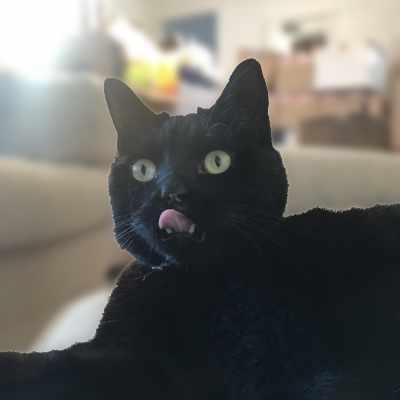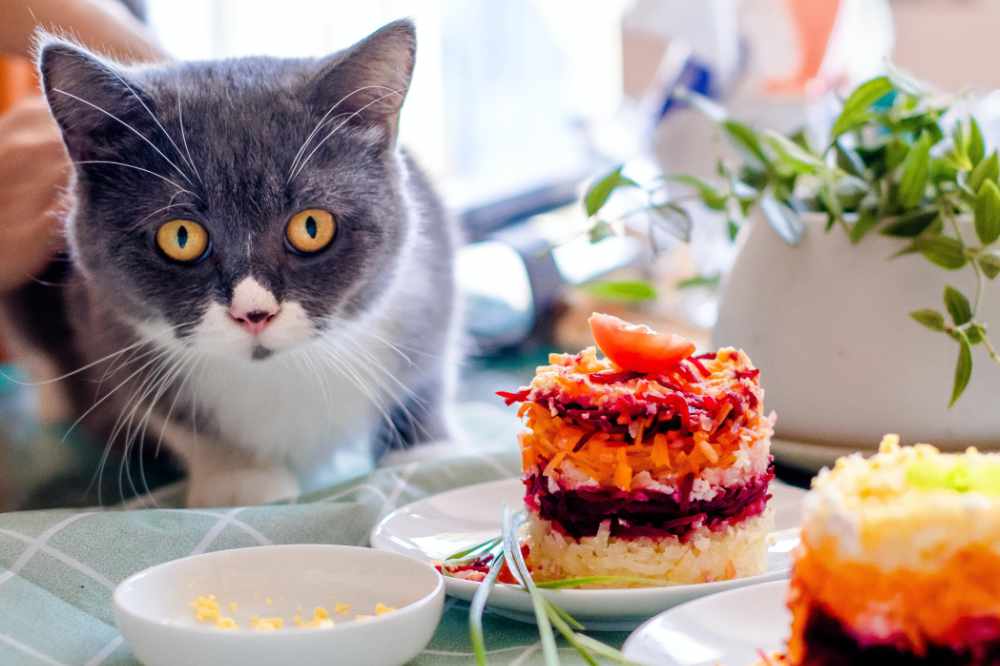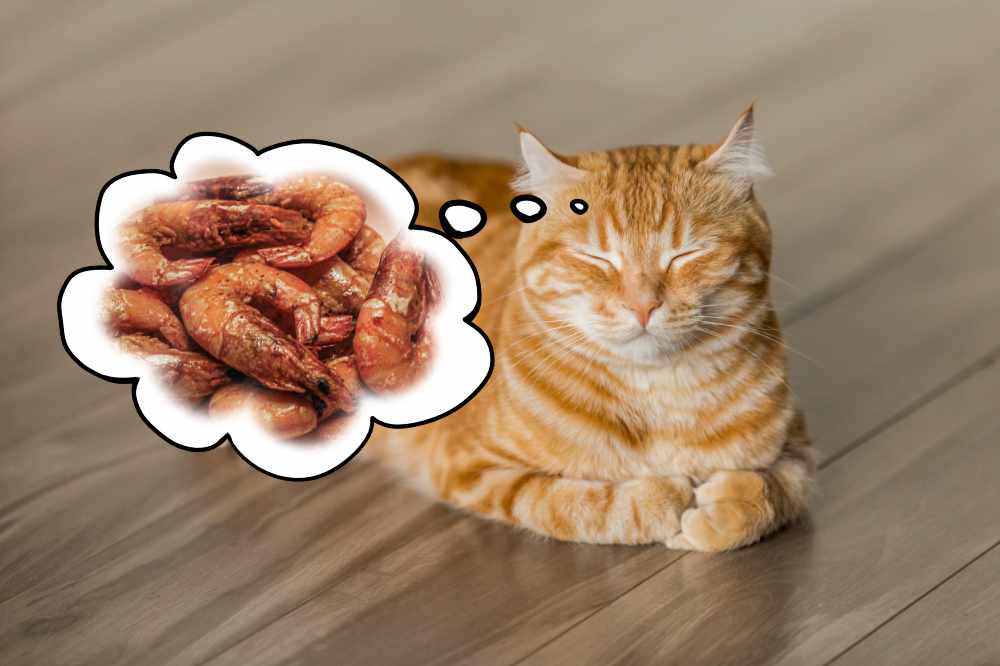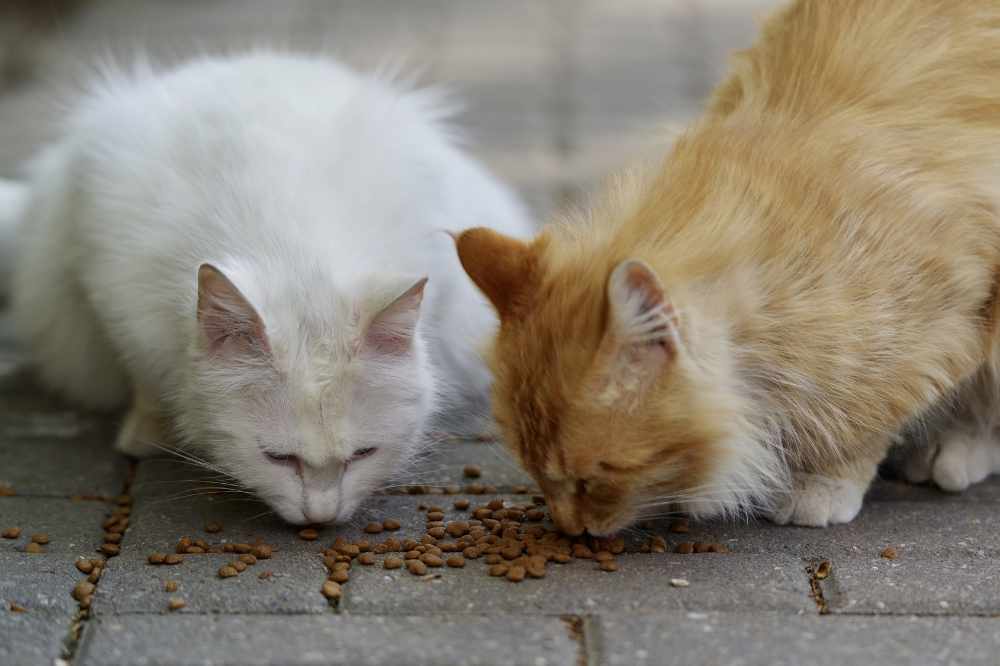Tuna goes with mayonnaise like cats and fish. The two compliment each other so perfectly that there’s no need for an explanation.
A lot of cats love eating fish and with so many cat foods being advertised as fishy flavoured then it may seem a no brainer that cats can eat tuna. With so many people assuming this to be the case it’s more important than ever to highlight the question of whether or not its safe to feed tuna to your cat.
To add a layer of complexity, more often than not, tuna is mixed with mayonnaise so we have another ingredient to consider when trying to figure out whether or not it can go in the cat food bowl.
Tuna and mayonnaise can be a safe treat for your cat but only if it doesn’t contain any onions, garlic, or mustard. It’s best given in tiny amounts as too much can cause health problems and if your cat has any underlying illnesses then it’s best avoided.
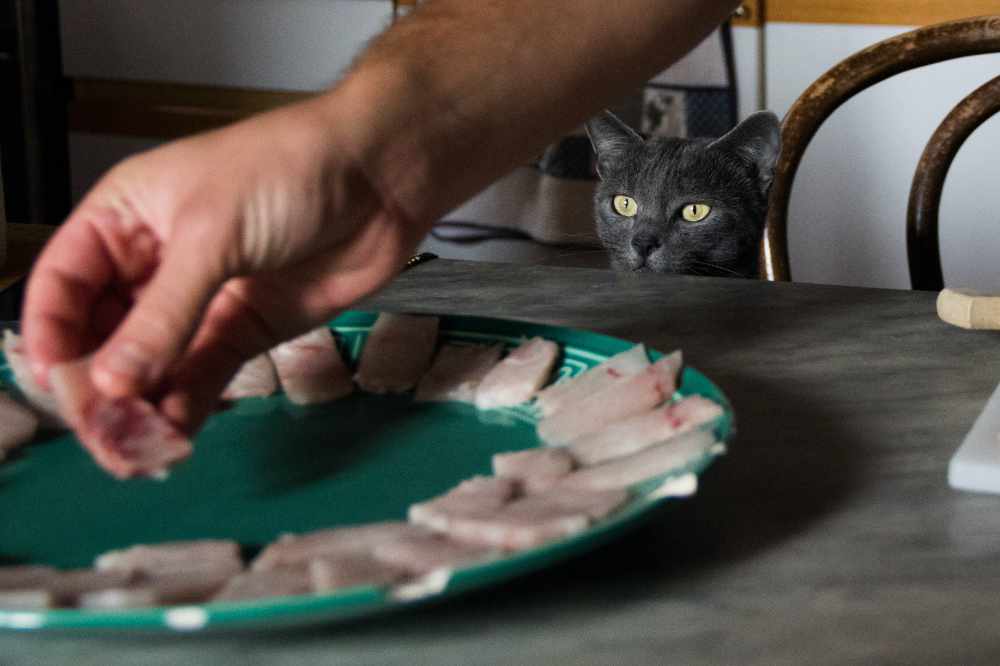
Short Answer – Can Cats Eat Mayonnaise with Tuna?
The short answer is yes, tuna mayonnaise isn’t inherently dangerous for cats to consume but it isn’t the healthiest choice either. There are a lot of reasons why this popular sandwich filling isn’t considered a kitty superfood so read on to find out why it may be best to leave this option in the fridge and reach for the cat food instead.
What Is Mayonnaise Composed Of?
Mayonnaise is such a common ingredient in so many dishes that it can be easily overlooked when it comes to nutrition. It’s not just your feline friend that this impacts. Let’s have a closer look into the white stuff and find out whether it’s a good choice to add to you and your cats diet.
Mayonnaise is made from a balance of water and oil that’s been mixed up in a process called emulsification. This is essentially vigorous whipping that incorporates air into the mixture in miniscule little bubbles. The resulting texture is thick and creamy and this is what turns the slick oil into thick mayonnaise. To allow the mixture to hold it’s state there also needs to be an ingredient that acts as an emulisifier. Egg yolk is typically used as this is high in proteins that act to attract and repel water and oil droplets. This results in a kind of glue-like effect to bind everything together.
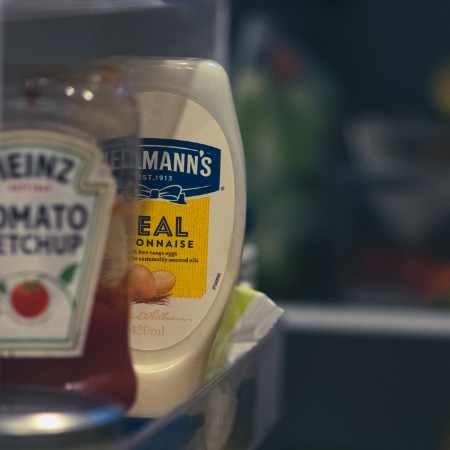
Just as us humans can suffer if we consume too many calories, so can our feline friends. Mayonnaise is extremely calorie-dense due to the high oil content so should not be given to your cat in large amounts. It’s worth noting that compared to you, your cat is 15 to 20 times smaller in terms of weight. What looks like a small meal to you can actually be very large from your cats perspective so even a tiny smidge of mayo can end up piling on the pounds.
Alongside the energy dense oil and egg yolk there are other ingredients added to mayo to enhance the flavour. Vinegar, mustard, sugar, spices and sometimes even stabilizers can be added. Mustard is known to cause vomiting and diarrhoea in cats and is best avoided.
Is Tuna Ok for Cats?
Cats and tuna are often associated in movies, cartoons, books and television series. It’s common knowledge that cats love tuna but is this really a good thing to be feeding to them?
The truth is, tuna is not harmful for cats but it isn’t exactly nutritionally balanced either. Tuna is an oily fish so is pretty calorie dense and cats can rapidly gain weight if they eat this all the time. It’s not considered a complete balanced diet for cats either as it lacks certain vitamins and minerals that cats need.
A very fatty diet can cause health issues for your cat such as fatty liver syndrome and pancreatitis as well as obesity and its related issues.
A final issue with tuna is that it contains heavy metals from the ocean that can accumulate over time. This could be harmful for your cat if they eat a diet that’s very rich tuna.
What Do Cats Need For A Balanced Diet
So far we have established that tuna is not a balanced diet for a cat and mayonnaise is not toxic but it can cause health issues for your cat. So what does your cat need from their diet?
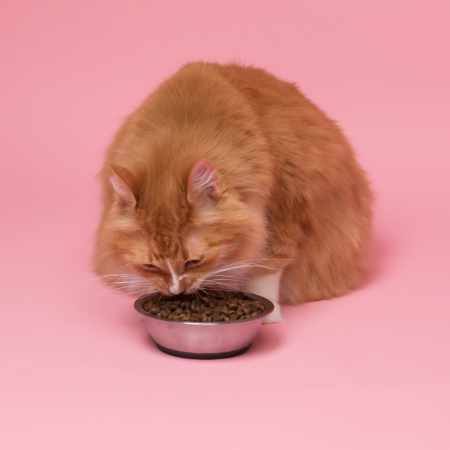
It’s really important to feed your cat a complete, balanced diet that’s marketed for their lifestage. An adult cat has different requirements than a kitten and senior cats can benefit from a diet that’s formulated for their needs. The easiest way to do this is simply to buy your cats food pre-prepared. It doesn’t matter as much whether the food is wet or dry, the most important consideration is that you choose a complete meal.
Cats need good quality, animal protein in their diet as they don’t use carbohydrates for energy like we do. They require essential amino acids only found in meat so plant based just will not do for your cat and feeding your cat a vegetarian diet can make them blind or even kill them.
Alongside protein your cat does need a moderate amount of fat to stay healthy and a minimal amount of carbohydrates are added. Just like us, cats require a good balance of vitamins, minerals and other micronutrients to stay heathy. You dont need to give your cat vitamin tablets however, as good quality pet food is formulated to contain these already.
It’s not a good idea to make up your own cats food (unless your a qualified, pet nutritionist) as it can be very compex and there’s a high chance you will miss a key element out of their diet. If you want to ensure the very best for your cat then choose a food brand that’s certified as vet approved or certified.
Other Common Ingredients with Tuna Mayo
There are often other ingredients added to tuna and mayonnaise to give it more texture and flavour. Here are some of the most common additions and a consensus on whether or not they are safe for cats.
Celery
Celery is a great crunchy texture to add to tuna mayo and it’s fresh, mild, yet sharp taste can cut through the fattyness of the other ingredients really nicely. Celery is low in calories due to it’s high water and high fibre content so is a healthy ingredient for us but what about your cat?
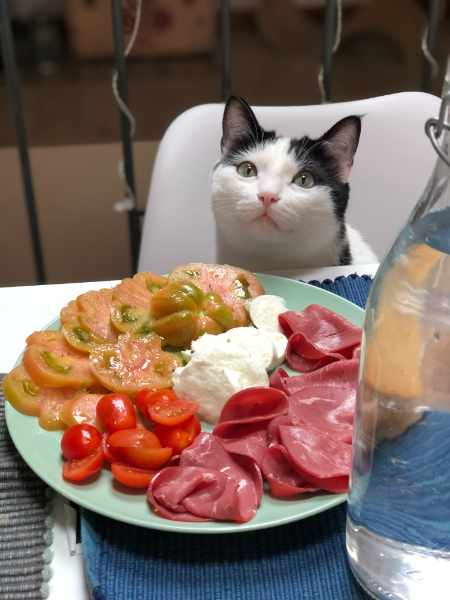
As it turns out cat can eat celery as there’s nothing in there that’s considered toxic or problematic. Most cats will choose to not eat their greens but if you have a cat that enjoys celery then it’s fine to let them have a small amount as a treat.
Sweetcorn
Corn is a colorful and tasty ingredient to enhance tuna mayo. The sweet flavor complements the creaminess of the tuna mayo and the corn adds a lovely texture to the mix. Sweetcorn is full of fibre so good for us humans and not bad for cats either.
The main reason cats may enjoy corn is often due to the butter added but some cats just like the taste of it on its own. Corn is a safe treat to give your cat but make sure it’s not on the cob as these can cause bowel obstructions if your cat eats them.
Onion
Small pieces of red onion, spring onion (scallions) or even crispy fired onions can add a delicious sweet flavor to your tuna dish. The downside is that these are not safe for cats at all. Both onions and garlic are poisonous to your cat and can cause a nasty type of anaemia.
If you suspect your cat has eaten onions or garlic it’s important to call your veterinarian as soon as possible.
Cucumber
Fresh cucumber is another great addition to a tuna salad recipe. Whilst it’s mild in flavour the freshness and crunch that it adds can be the perfect complement to a rich, creamy tuna mayonnaise.
The good news is that cucumber is a safe and healthy treat for your cat but too much of it can lead to them not wanting their normal food so it’s always best to offer it in moderation.
Cheese
Melted cheese on top of tuna and mayonnaise can add a richness that’s tough to beat. Cheese is a delicious topper for many recipes but it’s also one to be wary of. The high fat content means cheese is packed full of calories and will rapidly lead to weight gain in people and cats if too much is eaten.
Cheese is a safe treat for cats but must be given in extreme moderation as it’s a very rich and fatty treat and can cause health issues if consumed in excess.
Final Verdict
Tuna mayonnaise is generally considered safe for your cat to eat as long as it is enjoyed in moderation. A tiny scraping from the mixing bowl is a delicious treat but a whole dish of the stuff is not a good idea. It’s important to be careful with any additional ingredients and avoid onions, garlic and mustard if you plan to give your kitty a taste.
If in doubt it’s best to stick to food that’s been manufactured for cats and save the tuna mayo for your own sandwiches.
Bon appetite!
